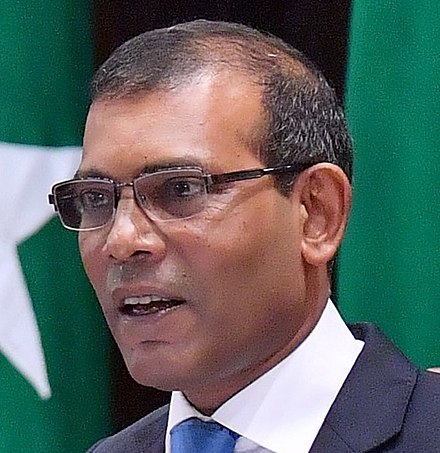IBA and IBAHRI condemn attempted assassination of Mohamed Nasheed The International Bar Association (IBA) and the International Bar Association’s Human Rights Institute (IBAHRI) condemn the attempted assassination of former Maldives President, Mohamed Nasheed . The organisations call for an impartial and independent investigation into the attack, and to ensure fair trial standards and due process are observed as the perpetrator(s) are held to account.
The International Bar Association (IBA) and the International Bar Association’s Human Rights Institute (IBAHRI) condemn the attempted assassination of former Maldives President, Mohamed Nasheed . The organisations call for an impartial and independent investigation into the attack, and to ensure fair trial standards and due process are observed as the perpetrator(s) are held to account.
IBA President, Sternford Moyo said: ‘The international condemnation that followed the attempted assassination of Mohamed Nasheed underlines the preciousness of what is penned in a number of international legal instruments, including Article 3 of the Universal Declaration of Human Rights, which states: “Everyone has the right to life, liberty and the security of person.”’
Mr Moyo added: ‘Mr Nasheed is doing important work in the areas of climate crisis, advancing democratic freedoms, and investigating and inhibiting corruption. Through his efforts he brings international focus and seeks solutions to global warming, which is causing rising sea levels that are detrimentally affecting the low-lying Maldives islands. Now, he lies in an intensive care unit, instead of working on pressing issues affecting the Maldives. The actions of the culprit(s) that have caused an interruption to Mr Nasheed’s work have no place in democratic society. It is essential that the ensuing court case meet fair trial standards to demonstrate the qualities of a tolerant and just society for which Mr Nasheed advocates.’
Reports state that, on 6 May 2021, an explosive device planted on a motorbike outside of Mr Nasheed’s home was detonated as he was about to get into his car. The explosion has left him in a critical condition and injured at least four others, including two of his bodyguards.
The attack on Mr Nasheed, the Speaker of Parliament, has been described by some as terror related. However, others have urged caution in apportioning blame. Mr Nasheed is known to be outspoken against religious extremism. He has also implicated political opponents in embezzlement.
IBA Executive Director Dr Mark Ellis commented: ‘Mr Nasheed is much admired for his advocacy for democratic governance, respect for human rights and advocacy on the environment. We hope for his swift return to advancing these important causes. We also hope for the apprehending of all involved in the attempt on Mr Nasheed’s life, followed by fair and impartial judicial proceedings in accordance with the standards of theInternational Covenant on Civil and Political Rights, as laid out in Article 14 .’
At the request of the Maldives’ security authorities, Australian Federal Police officers are assisting in the investigation into the attack on Mr Nasheed.
IBAHRI Director, Baroness Helena Kennedy QC commented: ‘As the first democratically elected leader of the Maldives, the attack on Mohamed Nasheed is particularly chilling. The incident demands a robust judicial response from authorities that sends a clear message not only to the Maldives, but to the rest of the world that violence must not be used to further agendas. Daily, we learn of lives being extinguished or threatened because of some deep-seated hatred or a difference of opinion or ideology. The cycle is futile. It is unconscionable that someone who is working to improve the world should be so violently attacked. The world needs the courageous voice and actions of people like Mohammed Nasheed, and that is why full judicial accountability for this heinous act must be brought to bear on the perpetrator(s).’
Mr Nasheed’s election as president of the Maldives (2008–2012) ended nearly 30 years of what has been described as autocratic rule by then-President Maumoon Gayoom.
A trained marine scientist and passionate environmentalist, Mr Nasheed shot to global fame in 2009 after conducting the world’s first underwater cabinet meeting. He did so to raise awareness about how rising sea levels could see the Maldives submerged. He also highlighted this threat to the Maldives’ existence in the 2011 critically acclaimed documentary ‘The Island President’, as well as discussing potential forced migration, food security, renewable energy, and the role of law and lawyers. In 2014, at the IBA’s Annual Conference held in Tokyo, Japan, an international audience sat rapt listening to him describe how climate change was affecting his nation.
ENDS


